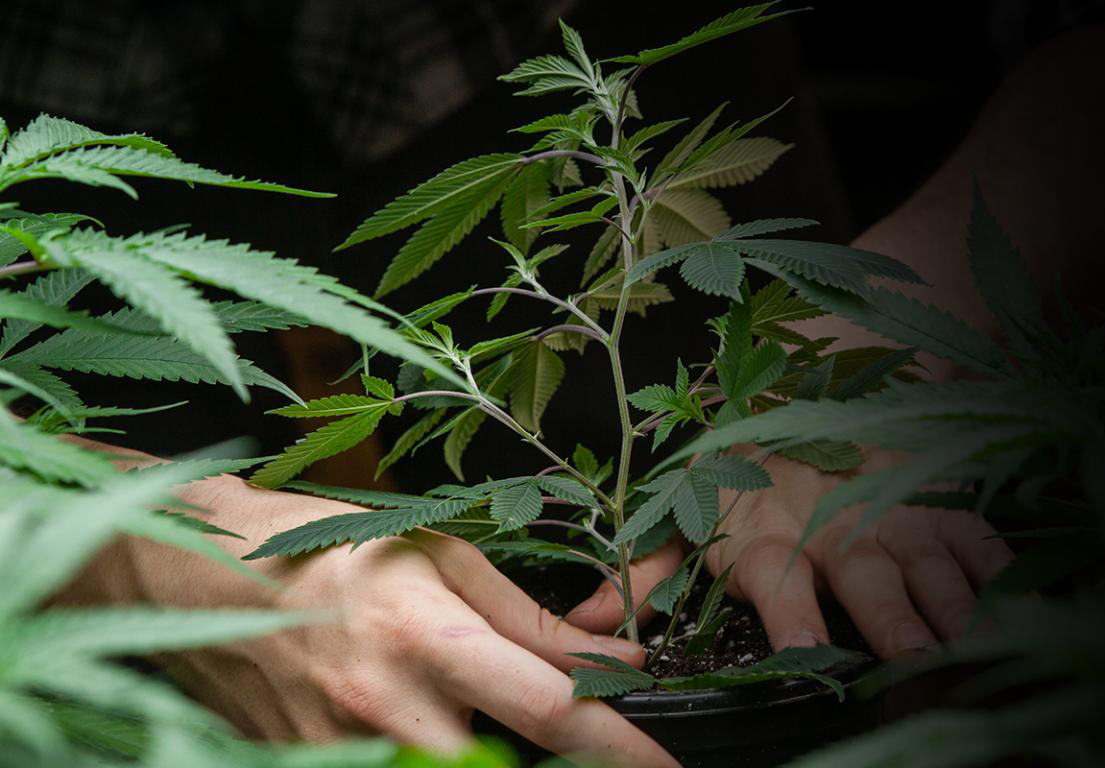News, articles, and interesting stuff from the College of Business
A New Foundation for the Northwest’s Hemp Industry
The College of Business is an integral part of OSU's new $10 million grant for the Global Hemp Innovation Center from the U.S. Department of Agriculture.

This fall, Oregon State University’s Global Hemp Innovation Center received a $10 million grant from the U.S. Department of Agriculture to study and define the economic and social opportunities hemp can provide for rural communities and tribes from Canada to Mexico.
The College of Business is an integral part of the project.
Over the next five years, faculty from finance; the Center for Advancing Diversity, Equity and Inclusion in Business; the Center for Marketing and Consumer Insights; and the Center for Supply Chain Management will collaborate on the grant. It is the college’s largest research grant in its history.
The goal: To help create a foundation for a vibrant, hemp-based economy along the Route 97 corridor in Washington, Oregon, California and Nevada.
The College of Business joins the Global Hemp Innovation Center on the project, eight institutions nationwide, as well as scientists and researchers from OSU’s colleges of Engineering and Pharmacy and the OSU Extension Service.
“I am proud of the critical roles our faculty and centers will have in making this project a success,” said Tim Carroll, the Sara Hart Kimball Dean of the College of Business. “This project highlights the college’s ability to use our strengths to work across disciplinary boundaries and have a measurable impact on the lives of people in Oregon and beyond.”
Since the 2018 Farm Bill broadly legalized growing hemp, there has been explosive interest in the crop, but little knowledge about which types to grow for the right markets, or how rural communities, farmers and tribes can successfully integrate the crop into their existing economies to meet consumer needs, generate profit and affect positive change in their communities.
“We have been teaming up with the Global Hemp Innovation Center for a few years to identify projects in which our expertise in the College of Business can augment the work researchers are doing across campus in the sciences,” said John Becker-Blease, associate dean of graduate programs and the faculty leader of the Business and Marketing Consortium for the hemp center.
Finance instructor Jonathan Leong, along with his students, will work to determine the economic feasibility of vertical value chains in the hemp industry by developing financial models based on historical empirical data and forecast their trajectory.
Leong and his students’ analysis will help hemp-based growers, processors and entrepreneurs understand their economic opportunities and work with investors to secure capital. It will also provide templates for future endeavors in the hemp industry as well as a guide for refinement.
Anne Sinkey of the Center for Advancing Diversity, Equity and Inclusion (DEI) in Business will oversee DEI-related training and consultation for the project and will work with partners in the community to train all project staff in recommended practices for cultural responsiveness and respectful engagement in interactions with the North American tribal partners involved in the grant.
Additionally, the Center will offer consultation to research team members to ensure that project-related research utilizes an equity lens.
Student and faculty researchers in the Center for Marketing and Consumer Insights, headed by center director and instructor Johnny Chen, will conduct a comprehensive stakeholder analysis of hemp value chain members and construct a business and product database to share as a research and marketplace resource.
Professors Ping-Hung Hsieh and Wu Zhaohui of the Center for Supply Chain Management will be developing a model for existing regional logistic, transportation, and supply chain infrastructure and determining needed improvements for the efficient incorporation of hemp-based manufacturing into regional economies.
“All of our faculty’s efforts, along with those of their collaborators, can make a big difference in building a solid industry that will be an asset to the state and region for decades to come,” Becker-Blease said.
Work on the project kicks off in October 2021.